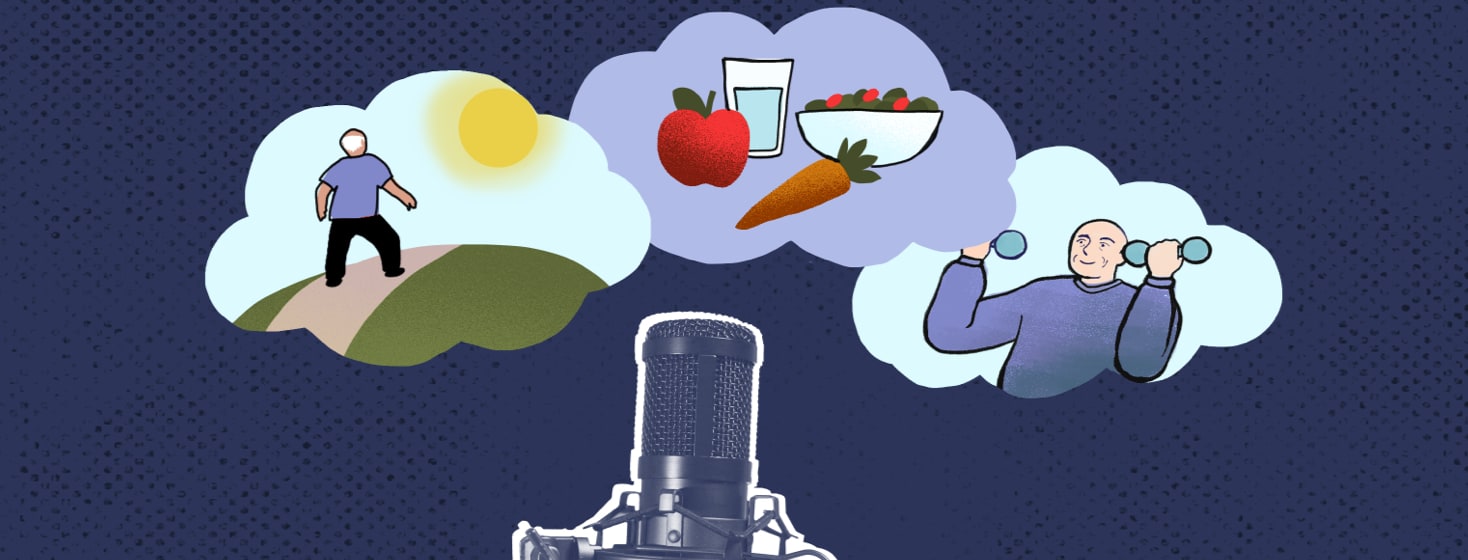Visiting Huberman's (Insomnia) Lab
I admit I have my biases against self-proclaimed health and wellness experts who want to sell me "the new cure" or tell me "the secret your doctor does not want you to know." Often, these "cures" are backed by sketchy data and do not lead to long-term improvement.
I initially filed Dr. Andrew Huberman and his podcast "The Huberman Lab" into this category and didn't investigate further. But both my patients and my students have asked my thoughts about Huberman's "sleep cocktail," so it was time for me to listen for myself.
Visiting "The Lab"
I pushed aside my skepticism and listened to 2 episodes of "The Huberman Lab." I was pleasantly surprised by what I heard. First, Dr. Huberman is a neuroscientist and a tenured professor of neurobiology at Stanford University. His credentials suggest that he knows the science behind sleep, probably a lot better than I do. Second, he actually applied the science to his recommendations! I cannot say that for all of the health and wellness "experts" out there.
Science-based recommendations
Dr. Huberman mentioned his now-famous "sleep cocktail" in the episodes that I listened to. And based on the questions I get asked, the "cocktail" seems to stand out most to his listeners. But this is not Dr. Huberman's main recommendation.
In fact, the bulk of what he recommends are behavioral strategies common to established treatments such as cognitive behavioral therapy for insomnia (CBTI). These recommendations include:1,2
- Get sunlight exposure upon waking. This helps to set your circadian rhythm and regulate alertness throughout the day. In fact, bright light (especially sunlight) exposure is the most powerful way to set your daily rhythm.
- Limit naps. If you must take naps, limit them to 20 minutes or so. Limiting naps prevents you from washing out your sleep drive, or sleep “hunger,” early in the day. This helps ensure that you have built up enough sleep pressure to fall asleep easily at your bedtime. Furthermore, keeping naps short helps to prevent grogginess. Long naps are more likely to include deep stages of sleep, which are difficult to wake up from.
- Practice relaxation exercises daily. Huberman notes that many relaxation strategies can be helpful – yoga nidra, meditation, hypnosis, and others. He also recommends periods of relaxation or "non-sleep deep rest" during the day. All relaxation strategies have the benefit of reducing arousal, which can improve sleep. Incorporating relaxation practice into your end-of-the-day "wind down" routine can be especially helpful.
- Maintain regular exercise and meal times. While bright light is the number one "entrainer" of circadian rhythms, your eating and exercise routines influence your daily rhythm, too. The more consistent you can be with the timing of your meals and exercise, the more consistent your circadian rhythm may become. This does not mean you should never eat or exercise outside of a specific window of time. But keeping that timing consistent on most days is beneficial.
This or That
What do you find more difficult to maintain?
The cocktail comes with warnings
It is only at the end of episode 2 that Dr. Huberman discusses the role of supplements. What has come to be known as the "Huberman sleep cocktail" is a combination of supplements that some people find helpful to their sleep. But while this "cocktail" has garnered a lot of interest, Dr. Huberman introduces it with several warnings.1,2
Several times, he stresses that listeners should try the behavioral strategies above before considering supplements. He notes that he is a scientist, not a medical doctor, and that he cannot prescribe medicines. He directs listeners to talk to their healthcare providers before adding any supplements or over-the-counter medicines to their regimen.1,2
And he notes that supplements are "not a one-size-fits all" option. He explains that they are unregulated by the FDA. Dr. Huberman warns that although supplements are safe for many people, they can cause significant side effects, including:1,2
- Vivid dreams
- Sleepwalking
- Daytime grogginess
- Reduced estrogen production
Consider Huberman's recommendations as a whole
What I took away from these 2 podcast episodes is that Dr. Huberman values the relationship between behaviors and sleep. He echoes what sleep clinicians have been recommending for years: behavioral strategies are the most effective tools for improving sleep. While supplements may be helpful to some, they do not replace his top recommendations.1,2
Like Dr. Huberman, I recommend that you use all of these tools before exploring "the cocktail." Consider Dr. Huberman's recommendations as a whole, not just bits and pieces of it.

Join the conversation